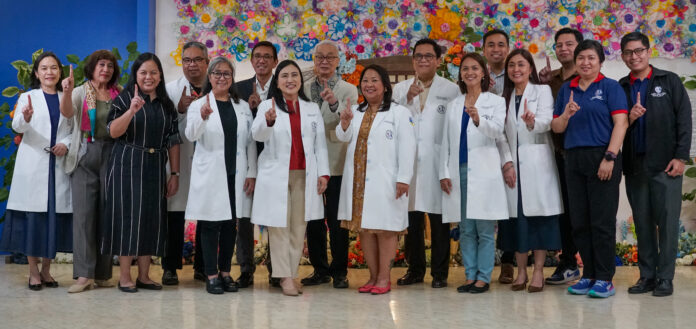An estimated half a million Filipinos suffer from stroke every year, with more than 87,000 deaths, making it the second leading cause of death in the country.
To help address this growing health crisis, Mary Mediatrix Medical Center (MMMC), a tertiary hospital in Lipa, Batangas, has launched its Institute for Clinical Neurosciences to improve access to specialized care for patients in Southern Luzon.
“The Institute for Clinical Neurosciences is providing neurology expertise to treat stroke and other brain diseases. At the same time, it is bringing in advanced equipment like MRI machines, CT Scans, neuro-microscope for neurological procedures, EMG-NCV machines, EEGs; and an epilepsy monitoring unit,” said Dr. Edna Cuasay, chief of the Institute for Clinical Neurosciences of MMMC.
The new Center for Excellence aims to address the shortage of neurologists in Batangas and nearby provinces, while offering advanced diagnostic and treatment services, and research programs to strengthen the country’s knowledge on brain diseases.
“It used to be that the only venues for training neurologists were concentrated in NCR. However, thanks to the efforts of both government and tertiary hospitals, we are expanding these training facilities outside NCR. Here in Southern Luzon, we have only one neurology training facility which is Mary Mediatrix Medical Center,” Dr. Cuasay said.
According to her, there are two types of stroke: ischemic, where a blood clot blocks a brain vessel, and hemorrhagic, where a vessel bursts and bleeds. “Here in Mary Mediatrix, we have full services to perform procedures that treat both types of strokes. Whether that calls for a thrombolysis that can reverse the stroke, or removing the blood clot through thrombectomy or the basket method,” she explained.
Dr. Cuasay emphasized that stroke is the leading cause of disability in the Philippines and in Batangas. “Time is the most important factor not only in saving a patient’s life but also in helping a patient recover and restore quality of life,” she said. “When responders, whether emergency personnel, doctors, or loved ones, save time in accessing treatment for a patient, they are saving lives.”
With the new Institute for Clinical Neurosciences, patients from Southern Tagalog, and even from Quezon and Bicol, can now access advanced treatment for stroke and other brain conditions closer to home—giving them a better chance to recover mobility and restore physical and mental functions.







